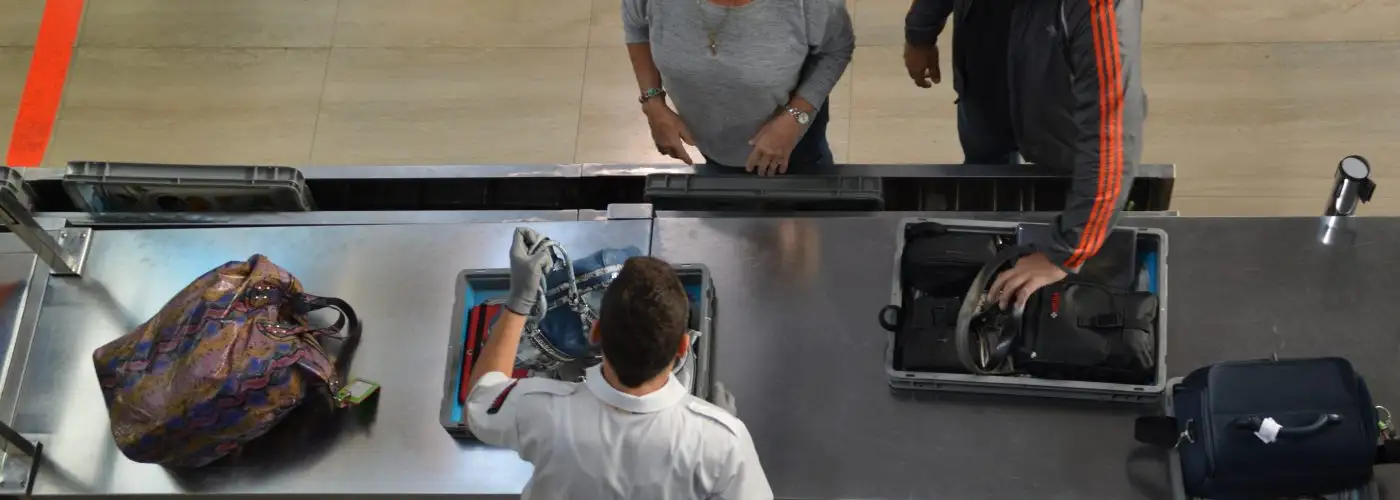If this morning’s reports from the BBC and other sources have it right, the ban on in-cabin laptops will not be extended to include additional flights from Europe to the U.S.
The current ban applies to electronic devices larger than smartphones on nonstop flights to the U.S. from airports in Egypt, Jordan, Kuwait, Morocco, Qatar, Turkey, Saudi Arabia, and the United Arab Emirates, and to nonstops from Egypt, Tunisia, Jordan, Lebanon, Turkey, and Saudi Arabia to the U.K.
U.S. Homeland Security officials met this week in Brussels week with their counterparts from European Union countries to discuss an expansion of the ban, leading many to expect that such action was a foregone conclusion. After all, if U.S. security agencies had credible intelligence indicating a terrorist threat, EU countries couldn’t very well neglect to take appropriate action.
It appears, however, that EU officials were unconvinced by the U.S. argument for adding new flights to the ban, either because they discounted the security risk or because they believed that adequate screening measures were already in place.
According to a terse news release issued by Homeland Security following the meeting, the group will reconvene next week in Washington, D.C., to “further assess shared risks and solutions for protecting airline passengers, whilst ensuring the smooth functioning of global air travel.”
In the meantime, the existing ban continues to be the object of harsh criticism from the public, the media, and representatives of the travel industry. The latest attack on the ban came in the form of a May 16 letter from the International Air Transport Association to Secretary of Homeland Security John Kelly and Violeta Bulc, the European Commission’s Commissioner of Transport.
In the past, IATA, which represents the interests of the world’s airlines, has argued that the current ban — and by extension, any additional bans — is unnecessary, ineffective, and harmful to travelers, the travel industry, and the economy at large. And in this week’s letter, IATA proposes a number of measures that could be taken to reduce the threat without resorting to an all-out ban. Among them:
- Use Explosive Trace Detection technology at airport checkpoints
- Increase scrutiny of electronic devices, including trace analysis
- Deploy behavioral threat officers and dogs at airports
- Increase reliance on trusted-traveler programs
- Better training of screeners
While IATA’s recommendations were intended specifically to forestall any expansion of the current ban, they are also clearly intended as an alternative to the existing U.S. and U.K. restrictions.
With the U.S. pushing to expand the ban, and other groups suggesting it should be rolled back, we may be at a tipping point. Whether it’s in the direction of more or less restrictive electronic-device policies remains to be seen.
Reader Reality Check
Expand the ban, or ban it: What say you?
More from SmarterTravel:
- Delta SkyMiles Members Can Now Earn Miles for Lyft Rides
- World’s Largest Airline Will Add Seats, Reduce Comfort
- J.D. Power Says Air Travel Is Better than Ever
After 20 years working in the travel industry, and 15 years writing about it, Tim Winship knows a thing or two about travel. Follow him on Twitter @twinship.
We hand-pick everything we recommend and select items through testing and reviews. Some products are sent to us free of charge with no incentive to offer a favorable review. We offer our unbiased opinions and do not accept compensation to review products. All items are in stock and prices are accurate at the time of publication. If you buy something through our links, we may earn a commission.
Related
Top Fares From
Today's Top Travel Deals
Brought to you by ShermansTravel
Shop and Save with Country Inns...
Patricia Magaña
 Hotel & Lodging Deals
Hotel & Lodging Deals
$229 -- Chicago: Discounted Rates and...
Francesca Miele
 Hotel & Lodging Deals
$229+
Hotel & Lodging Deals
$229+
$188 -- Honolulu: Save on Oceanview...
Abigail Lamay
 Hotel & Lodging Deals
$188+
Hotel & Lodging Deals
$188+




